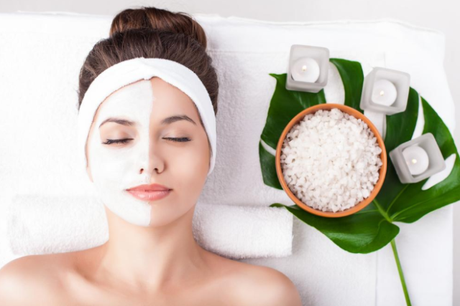
Having a comfortable skin feels beautiful. But at times one is faced with skin pigmentation which makes it difficult to experience the much-needed comfort. Skin pigmentation and dark spots occur when the body experiences such complications as hormonal imbalance, sun exposure, and skin injuries or inflammation.
More often than not, women use concealers and creams to temporarily hide their skin pigmentation problem. However, it is important to deal with the root cause of the problem in order to solve it permanently. Today, we will show you exactly how to treat skin pigmentation and solve the problem of dark spots so you can feel comfortable with your skin.
Natural Treatment Options:
Raw Potato to Treat Skin Pigmentation
Raw potatoes contain an enzyme known as catecholase, which thwarts the production of excess melanin. They can be effective in lightening dark spots and curbing pigmentation on your skin. All you have to do is slice a raw potato and rub it onto the affected area for 3-5 minutes.
Let it sit for about 5 minutes, and then use lukewarm water to rinse the area. You should repeat this process about three times a day for one month. Potatoes are effective because they inhibit melancoytes and curb excessive production of melanin.
Red Onion to Treat Skin Pigmentation
Red onion extract (scientifically known as Allium cepa) is an active ingredient in several skin lightening creams. Studies show that the dried skin of red onions is effective in lightening skin. Furthermore, onions are a perfect source of vitamin C, which acts as an antioxidant for treating skin pigmentation.
Lemon Juice & Turmeric Power to Treat Skin Pigmentation
Turmeric can add a radiant glow whilst eliminating any blemishes on your face. It also helps maintain the skin's normal PH levels. You need to combine lemon juice and turmeric powder in equal portions until you achieve a smooth texture.
After cleansing your skin, apply this mixture gently onto it. Give it at least 15 minutes before washing off with lukewarm water. You will want to clean once a day, especially before going to bed.
Specialized Treatment Options:
Dermo-cosmetic Solutions to Treat Skin Pigmentation
The best way to address skin pigmentation is to use skincare products specifically formulated to tackle this concern. White Paint Soap is an effective skin brightening facial cleanser, which has been dermatologically and clinically proven to address skin pigmentation . This skin brightening facial cleanser also proves useful in pore cleansing and can reduce wrinkles and fine lines.
The product is formulated with significant amounts of pearl powder and silk powder to ensure brighter, smoother skin complexion. It also features rich botanical oils which keep the skin hydrated even after cleansing. All ingredients are natural and certified organic but without alcohol, fragrances or artificial ingredients.
Chemical Peel to Treat Skin Pigmentation
For those who have more stubborn spots, a chemical peel might be the answer. Glycolic acid, salicylic acid, and TCA chemical peels are highly recommended to fight discoloration. According to dermatologists, chemical peels can be powerful in banishing deeper pigment and speeding up results.
What is even more important is that professionals can manipulate their potency to suit the specific pigment type and depth. Take caution, though. A peel may not be suitable for every skin color and you may want to try another treatment option if you have a history of scarring.
Microdermabrasion to Treat Skin Pigmentation
Microdermabrasion involves removing the uppermost skin layer gently to get rid of darkness, sunspots, and other minimal discoloration. Some types of microdermabrasion (such as DermaSweep) offer a step whereby the skin is infused with specialized anti-pigment to further brighten it. This treatment option can effectively address the skin pigmentation problem.
Final Thought:Skin pigmentation is more of a cosmetic concern than a medical one. There are tremendous lots of remedies for treating skin pigmentation that can lighten dark patches on your skin. If you think there is an underlying medical condition causing your skin pigmentation problem, please don't hesitate to speak to your doctor.


